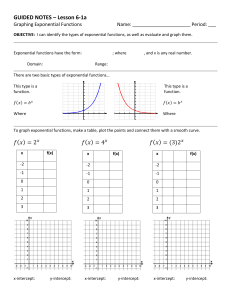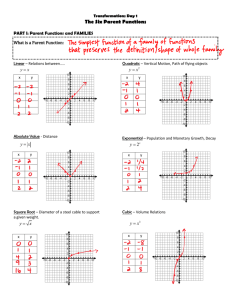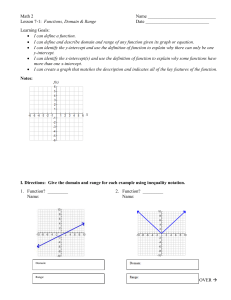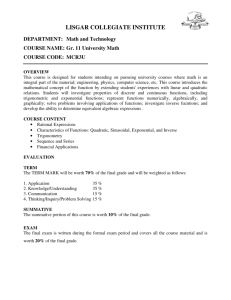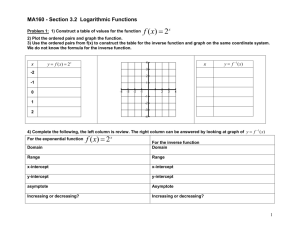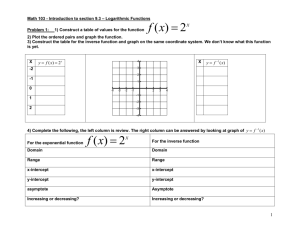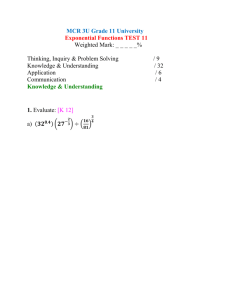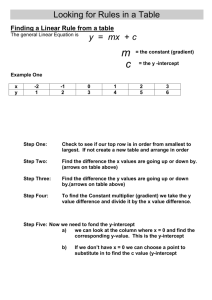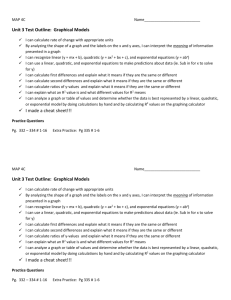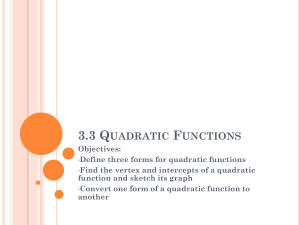x y
advertisement
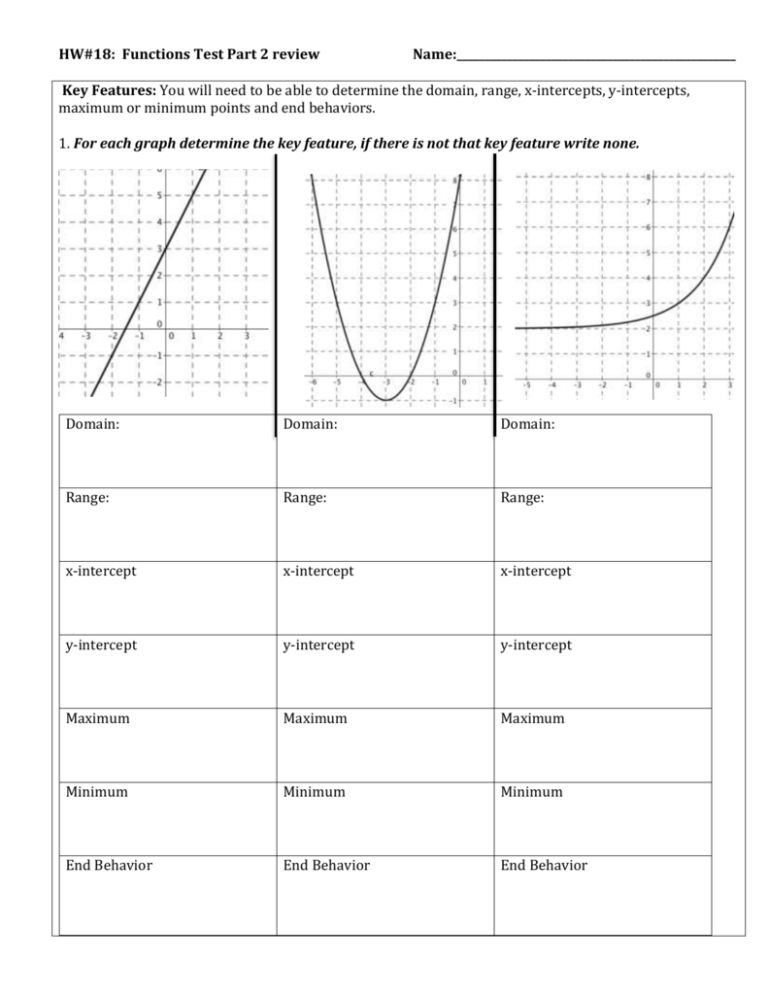
HW#18: Functions Test Part 2 review
Name:__________________________________________________
Key Features: You will need to be able to determine the domain, range, x-intercepts, y-intercepts,
maximum or minimum points and end behaviors.
1. For each graph determine the key feature, if there is not that key feature write none.
Domain:
Domain:
Domain:
Range:
Range:
Range:
x-intercept
x-intercept
x-intercept
y-intercept
y-intercept
y-intercept
Maximum
Maximum
Maximum
Minimum
Minimum
Minimum
End Behavior
End Behavior
End Behavior
Types of Functions: You will need to be able to figure out if a table, graph or equation is linear, quadratic
or exponential
Determine if each graph or table is linear, quadratic or exponential. How do you know?
2
3.
x
y
-1
17
0
10
1
5
2
2
3
1
5.
4.
6.
x
y
4
9
5
27
6
81
7
243
8
729
7.
x
y
0
2
1
7.5
2
13
3
18.5
4
24
Match each statement with the type of function it is describing
A. Linear Functions
8.____________
B. Quadratic Function
C. Exponential Function
Increase/decrease by multiplying by the same number between each output.
9.____________ Increase/decrease at a constant rate, the difference between each output is the same
10._____________Increase/decrease by a different amount, the change between the differences is the same
Inverse Functions: You will need to be able to find an inverse table, graph or equation given the original
function in table, graph or equation form.
Find the inverse function for each list, table, graph and equation given.
𝑥
11. 𝑓(𝑥) = 4 − 3
12. {(4.4, −4)(4.5, −6)(−6, 7.2)(−7, 8.4)}
14. {(4,5)(5,6)(6,7)(7,8)}
17.
15. 𝑓(𝑥) = 5𝑥 + 4
18.
x
y
4
5
6
7
8
9
27
81
243
729
13. 𝑓(𝑥) = 𝑥 − 174
16.
19.
x
y
-2
-1
0
1
2
11
8
5
2
-1
Key:
1.
Domain
Range
x-intercept
y-intercept
Maximum
Minimum
End
behavior
−∞ ≤ 𝑥 < +∞
−∞ ≤ 𝑦 < +∞
(−1.5,0)
(0,3)
none
none
As x increases, y increases.
As x decreases, y decreases.
−∞ ≤ 𝑥 < +∞
−1 ≤ 𝑦 ≤ ∞
(−4,0)(−2,0)
(0,8)
none
(−3, −1)
As x increases, y increases.
As x decreases, y increases.
−∞ ≤ 𝑥 < +∞
2≤𝑦≤∞
none
(0,2.5)
none
none
As x increases, y increases.
As x decreases, y approaches 2
2. Quadratic
3. Exponential
4. Quadratic
5. Exponential
6. Linear
7. Linear
8. C- Exponential
9. A -Linear
10. B -Quadratic
11.𝑓(𝑥)−1 = 4(𝑥 + 3)
12. 𝑓(𝑥)−1 = {(−4,4.4)(−6,4.5)(7.2, −6)(8.4, −7)}
13. 𝑓(𝑥)−1 = 𝑥 + 174
14. 𝑓(𝑥)−1 = {(5,4)(6,5)(7,6)(8,7)}
15. 𝑓(𝑥)−1 =
𝑥−4
5
16.
17.
19.
x
y
11
-2
8
-1
5
0
2
1
-1
2
18.
x
y
9
4
27
5
81
6
243
7
729
8
